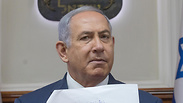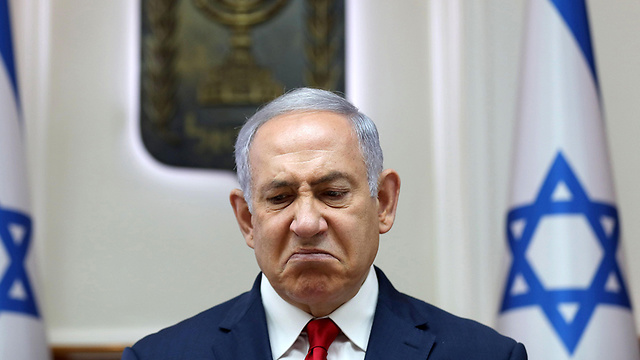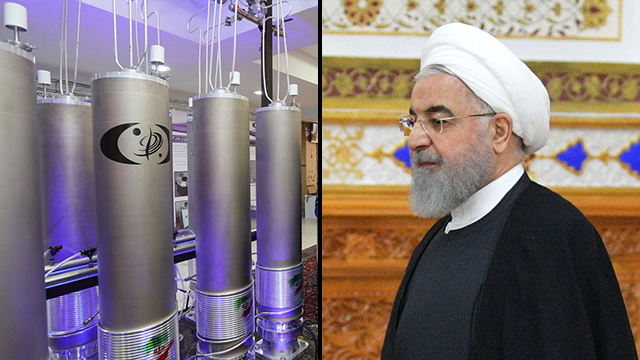
Netanyahu calls Iran's uranium enrichment increase 'very dangerous'
Iranian announcement to further scale back its commitment to the 2015 nuclear deal was met with unease in Israel as both the prime minister and the energy minister call on the European powers to impose new sanctions on Tehran
Prime Minister Benjamin Netanyahu on Sunday called an announced increase of Iranian uranium enrichment a "very, very dangerous step," and urged the European powers to impose automatic sanctions on the Islamic Republic.
Iranian officials earlier on Sunday said the country would further scale back its commitment to the 2015 nuclear deal with world powers, including ramping up the level of uranium enrichment beyond the 3.67% permitted under the agreement.
"Iran has violated its solemn promise under the U.N. Security Council not to enrich uranium beyond a certain level," Netanyahu said at the onset of the weekly cabinet meeting. "I call on my friends, the heads of France, Britain and Germany - you signed this deal and you said that as soon as they take this step, severe sanctions will be imposed - that was the Security Council resolution. Where are you?"
"The enrichment of uranium is made for one reason and one reason only - it's for the creation of atomic bombs," added the prime minister.
Energy Minister Yuval Steinitz described earlier on Sunday described the increase in uranium enrichment leves as "moderate" but accused Tehran of breaking out of internationally agreed limitations on its nuclear projects and moving towards a potential bomb.
"Iran has begun - while it is a moderate rise right now - but it has begun to raise, to break out of the uranium enrichment curbs that were imposed on it," Steinitz, a member of Netanyahu's security cabinet, said in an interview with Ynet.
"It means ... that it is brushing off the red lines that were agreed (and) that it has begun its march, a march that is not simple, toward nuclear weaponry."
Iran's deputy foreign minister also added that his nation will take another step impacting its compliance with its 2015 agreement in 60 days. Abbas Araghchi told a news conference Sunday that he cannot elaborate now on the nature of the next step.
The biggest obstacle to producing nuclear weapons is obtaining enough fissile material - weapons-grade highly enriched uranium or plutonium - for the bomb's core.
The 2015 deal caps the level of purity to which Iran can enrich uranium hexafluoride, the feedstock for centrifuges, at 3.67%, far below the 90% of weapons grade. It is also well below the 20% level to which Iran enriched uranium before the deal. The 3.67% cap lasts 15 years.












